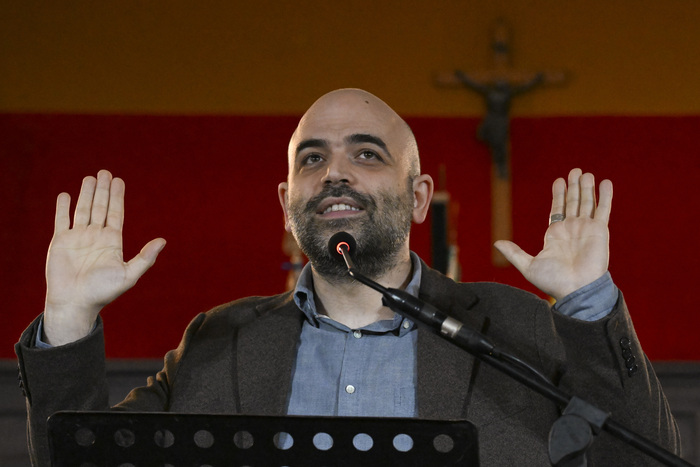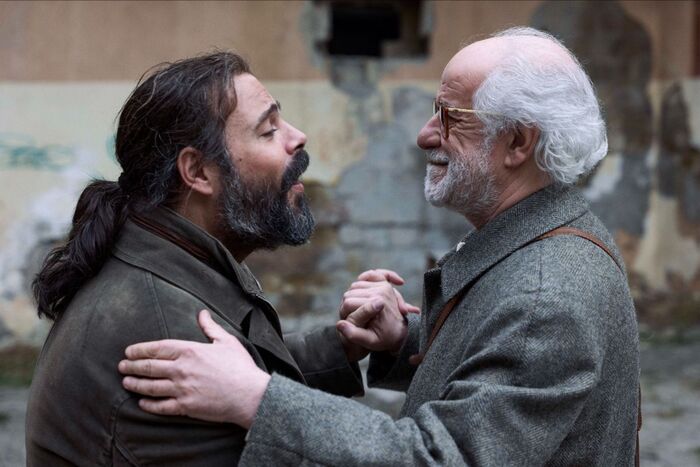This was a young writer of our language who, meeting as a jury of a literary prize with other colleagues and with Mario Vargas Llosa, approaching from the other end of the table, asked the Peruvian Nobel in his ear: “Mario, from writer to writer What do you think of Roberto Bolaño? ”. The author of The City and the Dogs only once denied an answer, and it was not, so he replied. He was not convinced, he said, of being so aware of the work of the then increasingly famous Chilean author as to issue an honest or healthy opinion.
Of all this anecdote, what always struck me the most was the prologue to the question: "Mario, from writer to writer." It is as if, being a pharmacist, you enter a branch establishment asking: "From pharmacist to pharmacist, do you have paracetamol?" Whether you are a writer or a pharmacist, the answer you seek is not of one nature or another. If that colleague had not been a writer, would Vargas Llosa have said anything else about Bolaños? Regarding the pharmacist, the Gertrude Stein sentence could be applied: a paracetamol is a paracetamol is a paracetamol is a paracetamol; that is to say, a paracetamol is a paracetamol, whether Agamemnon or his filth.
It occurs among writers, young and old, pedantic or simple, a notable tendency to feel that theirs is a guild that grants certain virtues, among others that of knowing more than others about the trade, and even more than those of their own trade . In this way, one reaches the arrogance that gives way to pedantry, and from there to questions like that. "Mario, from writer to writer ...". But naturally, this is not always the case. There are writers, like Mario Vargas Llosa, by the way, who do not fall into the temptation of feeling superior beings, for example, to the readers. "Mario, from reader to writer". I conceive of many ways to ask questions, or to ask prologues, and the one I heard Vargas Llosa ask me always seemed like a paradigm, or a paracetamol, about how you shouldn't start asking if you want to know what the other thinks about the other.
Anyway. There is a book I always return to to find out how a writer asks other authors without taking the answer for granted. That book is Philip Roth's The Office: A Writer, His Colleagues and His Works, translated by Ramón Buenaventura for Seix Barral in May 2003. It is, as it would be said now to recommend books, a true joy, which should be reissued not only for schools of writers but also for schools of readers, because in him Roth, who by the time the first edition came out (2001) was already one of the best writers in the world, shows himself as you and how, asking to know.
Being, then, one of the best writers in the world, he went to see Primo Levi, Aharon Appelfeld, Ivan Klima, Isaac Bashevis Singer, Milan Kundera, and his notebooks, his tape recorders and his own knowledge of reading. Edna O'Brien, Mary McCarthy, Bernard Malamud ... Complete the book with two portraits, one of the artist Philip Guston and the other, from his books, of his friend and teacher Saul Bellow. The result was hailed as follows by the New York Times Book Review: "Roth manages to extract from his interlocutors the convictions that feed his works and the vulnerabilities that make them human." It is, added the famous magazine, "a sample of his project and his unique intelligence." But neither the project, an ambitious tour around personalities who deserved respect, nor his intelligence are swords that he puts on the table to intimidate others. Because Roth asks the questions from the reader's side or, if you can say so, from the journalist who has documented himself to know more than he already knew.
The conversations, then, are carried out from the anxiety to complete and not from the pedantry of sharing. Therefore, two sides of the same table are joined, but each one is on its own side of the table. One of the encounters, which turns into a bitter human portrait of a friend he admired, Bernard Malamud, ends up being like a piece of literature by Roth himself. Bellow's literary portrait, through his characters, enters in his own right the anthology of the best (also human) readings of the character that Bellow had inside before and after having been confused with Chicago. His conversation with Isaac Bashevis Singer is especially brilliant, whom he is going to see to know more than a special personage of the Jewish literature of the 20th century, Bruno Schulz. In the end, that conversation is held as a discussion between two Jews who settle serious issues in their history, which Franz Kafka fully enters, and the right of the Jews themselves to introduce issues that harm the literature. image that the orthodox want for their own. "Although I wrote in Yiddish, they asked me , 'Why do you have to write about Jewish thieves and Jewish prostitutes?' And I answered them: "What do you want me to write about Spanish thieves and Spanish prostitutes? I'm talking about thieves and prostitutes that I know. "
The interview with Kundera, obtained with effort and carried out with quality, contains one of the best moments of the universal literary interview. Here is the question and answer:
Roth: Do you think the destruction of the world will come soon?
Kundera: It depends on what you understand soon .
In Primo Levi's, he reminds Roth that the interviewer is also the trade. But he never boasts of it, nor of the friendship that, one by one, has led him to obtain these treasures that, with professional and literary meticulousness, the poet, novelist and translator Ramón Buenaventura has put into Spanish. If one day someone really wants to know how to ask a writer, either privately, to find out what someone else thinks, or in public, here is a manual that, moreover, never falls out of your hands.




/cloudfront-eu-central-1.images.arcpublishing.com/prisa/KJKFJLLN25HIBCH7EI7AXP3X44.jpg)



/cloudfront-eu-central-1.images.arcpublishing.com/prisa/QZC6UNGQR5HDBN5R4FKADEPPQA.jpg)
/cloudfront-eu-central-1.images.arcpublishing.com/prisa/5SEXFGBQ55AM5FFLK2P7AH5QTM.jpg)





